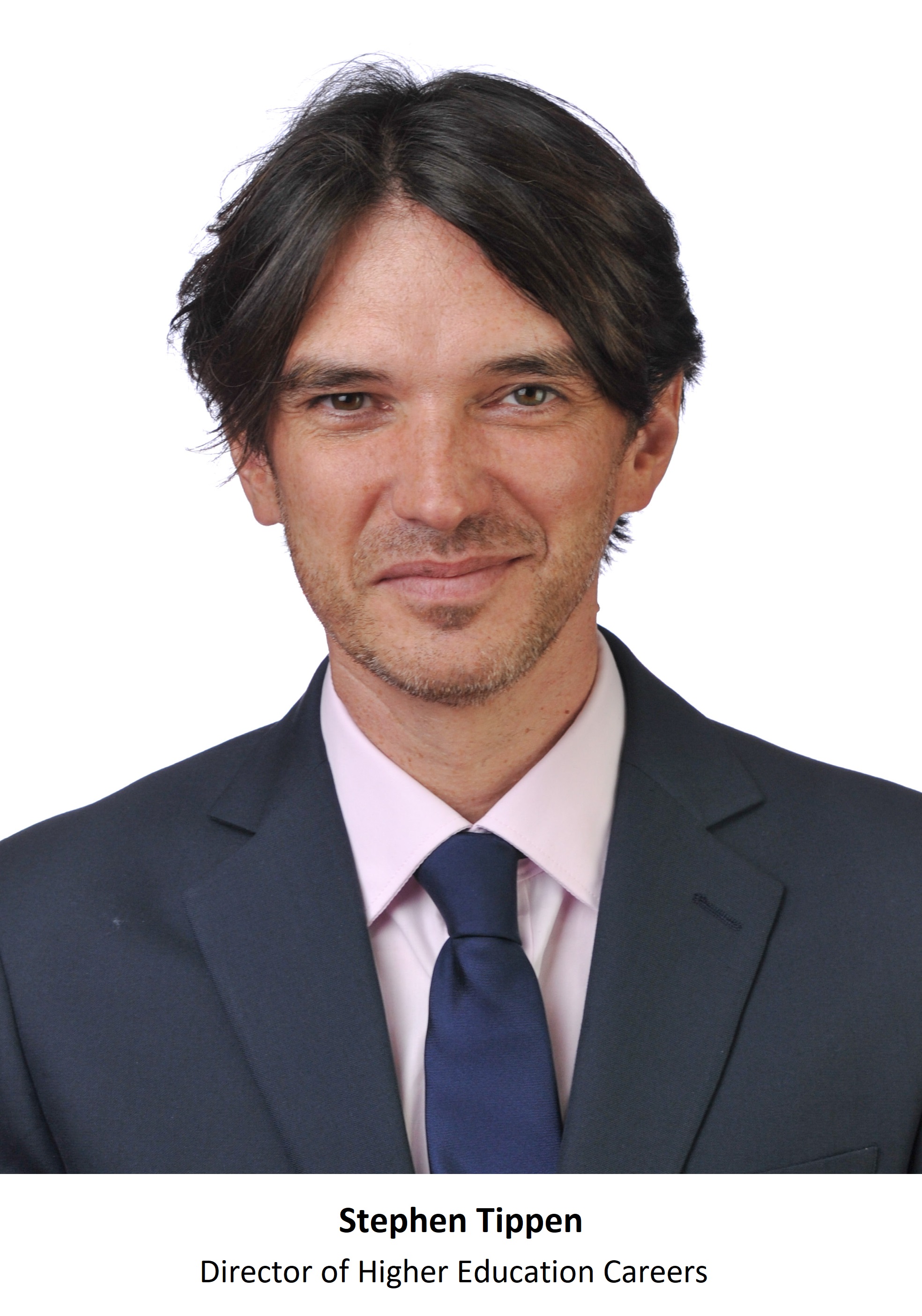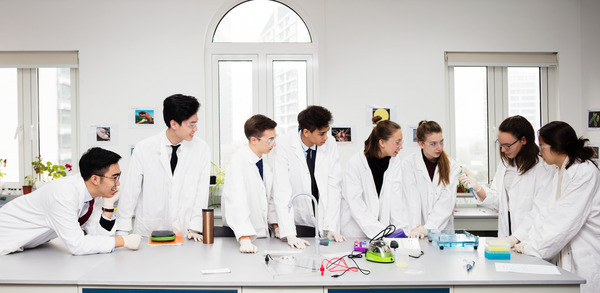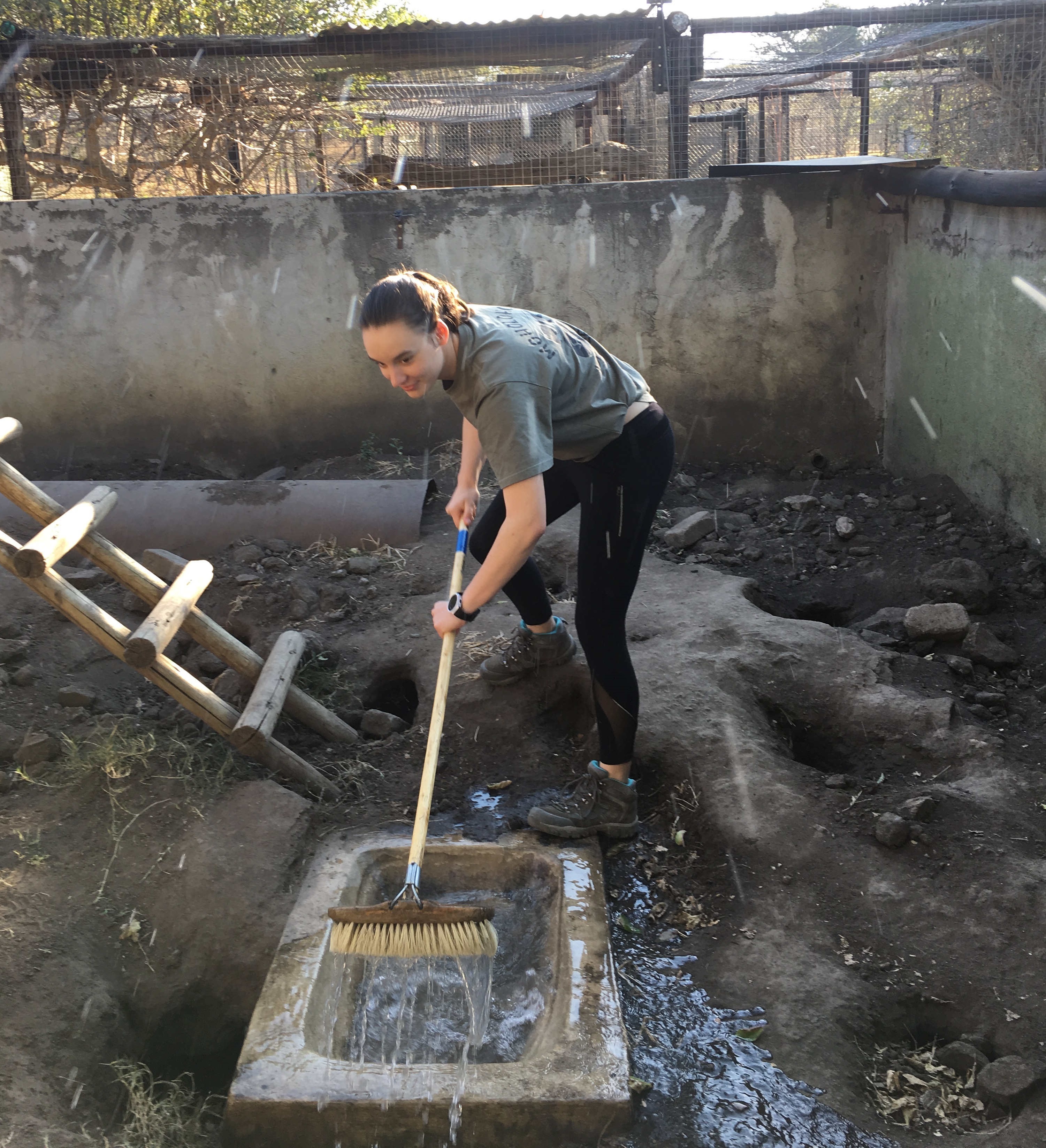Standing out from the crowd | What are universities looking for?
2019-03-06
 With Wellington College International Shanghai’s first Global University Fair taking place on 15th March it is the perfect time to ask: What exactly are universities looking for in potential students? This deceptively simple question is often shrouded in unnecessary mysticism. Pupils and parents often worry about the foibles of an individual university’s policies without first considering the key fundamental elements that all universities are looking for in a successful pupil’s application. These can be widely summarised under four key headings.
With Wellington College International Shanghai’s first Global University Fair taking place on 15th March it is the perfect time to ask: What exactly are universities looking for in potential students? This deceptively simple question is often shrouded in unnecessary mysticism. Pupils and parents often worry about the foibles of an individual university’s policies without first considering the key fundamental elements that all universities are looking for in a successful pupil’s application. These can be widely summarised under four key headings.
 It doesn’t matter how great a pupil’s extracurricular activities are – the thing that is going to have the biggest impact on a pupil’s chances of success is his/her academic grades. Consequently, excellent grades are the most essential element of any university application. Aside from IB results, most universities will look at IGCSE grades, so it is important that pupils keep up their academic performance throughout their time in school.
The subject and type of qualification, as well as the grade, are carefully considered by universities. Sixth-form pupils at Wellington take the IB Diploma, which is recognised by universities worldwide as being the most rigorous and demanding preparation for higher level study. Indeed, some universities offer extra credits and exemption from admissions tests for IB students. If pupils are interested in pursuing certain courses at university, they need to ensure that they carefully select the subjects that are going to be required or preferred. For example, a pupil interested in pursuing medicine at university would need to opt for IB Higher Level biology, chemistry and (ideally) mathematics. Likewise, a potential engineering student should ensure that HL physics and mathematics form part of their timetable.
It doesn’t matter how great a pupil’s extracurricular activities are – the thing that is going to have the biggest impact on a pupil’s chances of success is his/her academic grades. Consequently, excellent grades are the most essential element of any university application. Aside from IB results, most universities will look at IGCSE grades, so it is important that pupils keep up their academic performance throughout their time in school.
The subject and type of qualification, as well as the grade, are carefully considered by universities. Sixth-form pupils at Wellington take the IB Diploma, which is recognised by universities worldwide as being the most rigorous and demanding preparation for higher level study. Indeed, some universities offer extra credits and exemption from admissions tests for IB students. If pupils are interested in pursuing certain courses at university, they need to ensure that they carefully select the subjects that are going to be required or preferred. For example, a pupil interested in pursuing medicine at university would need to opt for IB Higher Level biology, chemistry and (ideally) mathematics. Likewise, a potential engineering student should ensure that HL physics and mathematics form part of their timetable.
 As well as current grades, universities will look at a pupil’s ‘academic potential’ to judge whether or not to offer them a place. This, of course, is much more difficult to assess. One way to do this is by setting targeting standardised tests to judge relative potential across an admission pool. This approach is most common in the US, where SAT/ACT tests are a staple of the university application process. Pupils can easily research the average SAT/ACT scores of successful candidates to a university and whether particular subject tests are advised. Other top universities will also use assessment tests to judge candidates, particularly in over-subscribed areas such as medicine and law. Assessment tests for prestigious universities such as Oxford and Cambridge are also common. These are usually taken at school in the autumn of year 13, and play an increasingly prominent role in admissions.
There are also a myriad of other ways in which universities can, and do, judge a pupil’s potential. They will pay particularly close attention to a pupil’s personal statement/college essays and school recommendations, as well as subject-specific content such as art portfolios or sample essays, for evidence that a pupil hasn’t reached an academic plateau. Ultimately, a potential interview or audition also provides universities with the perfect opportunity to assess the reality behind a candidate’s application.
As well as current grades, universities will look at a pupil’s ‘academic potential’ to judge whether or not to offer them a place. This, of course, is much more difficult to assess. One way to do this is by setting targeting standardised tests to judge relative potential across an admission pool. This approach is most common in the US, where SAT/ACT tests are a staple of the university application process. Pupils can easily research the average SAT/ACT scores of successful candidates to a university and whether particular subject tests are advised. Other top universities will also use assessment tests to judge candidates, particularly in over-subscribed areas such as medicine and law. Assessment tests for prestigious universities such as Oxford and Cambridge are also common. These are usually taken at school in the autumn of year 13, and play an increasingly prominent role in admissions.
There are also a myriad of other ways in which universities can, and do, judge a pupil’s potential. They will pay particularly close attention to a pupil’s personal statement/college essays and school recommendations, as well as subject-specific content such as art portfolios or sample essays, for evidence that a pupil hasn’t reached an academic plateau. Ultimately, a potential interview or audition also provides universities with the perfect opportunity to assess the reality behind a candidate’s application.
 University admissions officers are human and, like most people, they want to feel wanted. Universities will want to know that pupils have made a considered choice to attend a particular university and that they are ‘passionate’ about their future studies. As often in life, honest enthusiasm can take you a long way! However, it is worth appreciating how different types of universities will look for different things. US universities generally make a ‘holistic’ judgement based upon how the pupil will fit within their community. The role of the regional admissions officer is crucial here, as they can become an advocate for a pupil’s application. By attending university talks and making themselves known to the admissions team at events like university fairs, pupils can provide evidence of a ‘demonstrated interest’ in a particular university, which can make a successful application more likely. For UK based applications it is ‘all about the subject’. Although pupils are limited to one personal statement which they send to 5 universities, it should be used to provide evidence of what they have done to further their interest in their chosen subject. I often liken it to a ‘love letter’ written to their chosen discipline. It is important that pupils provide evidence of their love of the subject – details of extra reading, further studies and relevant competitions demonstrate the kind of deep and abiding interest that subject-based admissions officers crave.
University admissions officers are human and, like most people, they want to feel wanted. Universities will want to know that pupils have made a considered choice to attend a particular university and that they are ‘passionate’ about their future studies. As often in life, honest enthusiasm can take you a long way! However, it is worth appreciating how different types of universities will look for different things. US universities generally make a ‘holistic’ judgement based upon how the pupil will fit within their community. The role of the regional admissions officer is crucial here, as they can become an advocate for a pupil’s application. By attending university talks and making themselves known to the admissions team at events like university fairs, pupils can provide evidence of a ‘demonstrated interest’ in a particular university, which can make a successful application more likely. For UK based applications it is ‘all about the subject’. Although pupils are limited to one personal statement which they send to 5 universities, it should be used to provide evidence of what they have done to further their interest in their chosen subject. I often liken it to a ‘love letter’ written to their chosen discipline. It is important that pupils provide evidence of their love of the subject – details of extra reading, further studies and relevant competitions demonstrate the kind of deep and abiding interest that subject-based admissions officers crave.
 Universities will also want to know that applicant pupils have all the personal and academic attributes of a successful undergraduate student. Admissions officers will look for the ability to think critically and independently, put forward logical arguments, and keep an open mind. They will also seek out evidence of self-discipline, motivation, and the desire to learn more. US universities, in particular, will look for evidence of commitment to particular activities or volunteering and evidence of key attributes such as leadership and community involvement.
Universities will also want to know that applicant pupils have all the personal and academic attributes of a successful undergraduate student. Admissions officers will look for the ability to think critically and independently, put forward logical arguments, and keep an open mind. They will also seek out evidence of self-discipline, motivation, and the desire to learn more. US universities, in particular, will look for evidence of commitment to particular activities or volunteering and evidence of key attributes such as leadership and community involvement.

Wellington invites individuals and groups interested in attending our Global University Fair to register for attendance.

相关资讯

What is iGEM and our project, Barnacure?2025-10-09
iGEM Competition & Barnacure Team Members Team Illustration by Joanna, Year 11Article written Jing Jing, Year 11Primary Principal Investigator: Thomas Edwards, Head of Biology & Head of Science What
点击阅读

共筑美好:FOW SPACE 盛大启幕,惠灵顿之友的十年献礼2025-06-10
Felix Zhang惠灵顿之友家长协会主席 "惠灵顿之友"社区的力量再次让我倍感振奋!在全体惠灵顿社区的支持下,FOW SPACE数月来通过丰富多彩的活动、讲座和深度交流,为无数家长、家庭和朋友们搭建了温暖的互动平台! 这个充满活力的空间,源于去年六月惠灵顿之友核心委员会(FOW Core Committee)晚宴上的一次灵感碰撞。如今,它承载着我们对社区中心的共同愿景,成为惠灵顿之友和学校献
点击阅读

立即报名惠灵顿2025 年Summer Festival: 超级英雄集结!2025-04-22
一年一度的Summer Festival即将于5月10日盛大开启!作为惠灵顿引以为傲的传统活动,这一天不仅是校园的欢乐盛会,更是我们凝聚社区精神、共庆校园文化的重要时刻。今年,我们以“超级英雄”为主题,诚邀每一位成员以创意装扮亮相,共同打造一场充满活力与热情的庆典。 不要错过!扫描海报上的二维码进行购票 欢乐嘉年华特别放送 想清凉一夏就来海王戏水乐园打水仗,爱热闹的一定要锁定正义联盟大舞台的精彩
点击阅读










